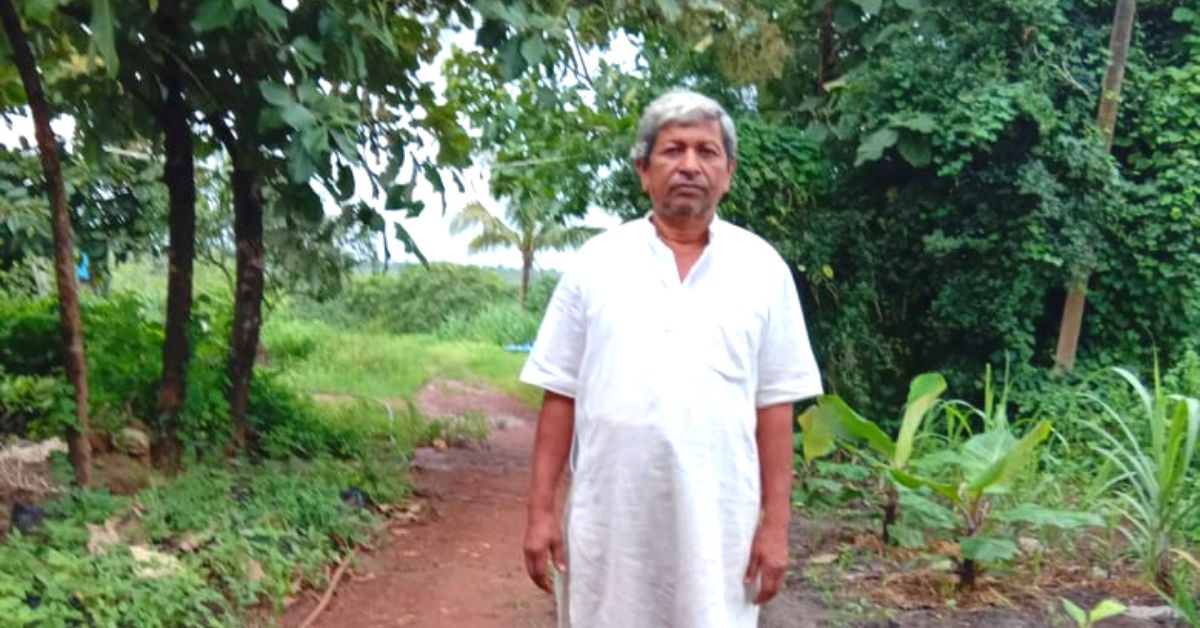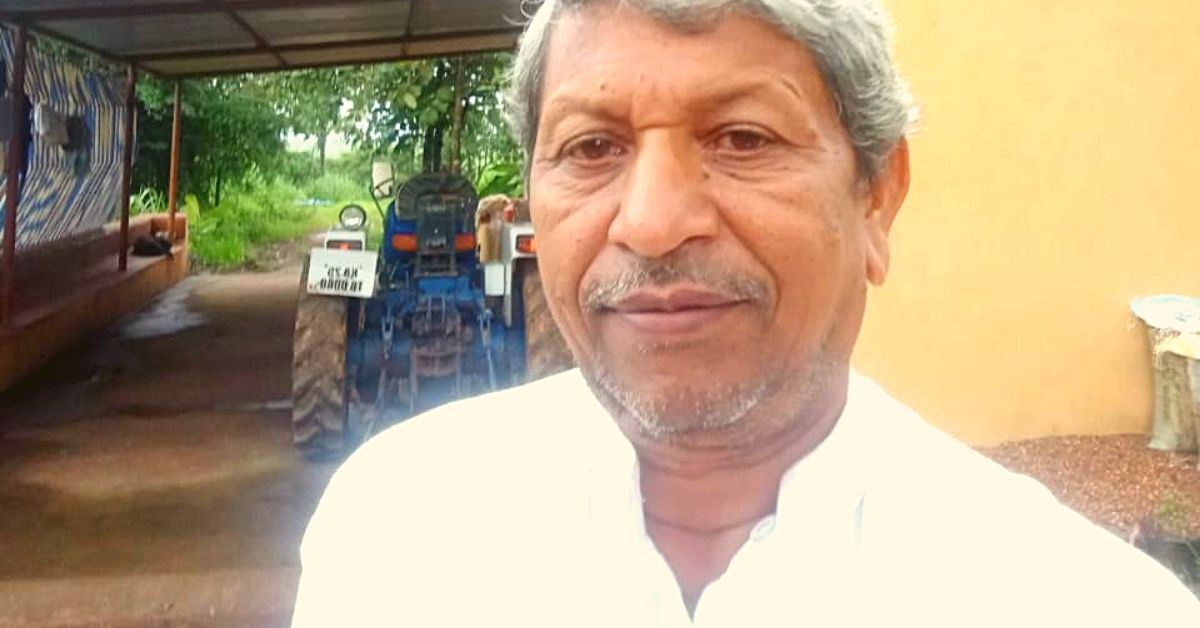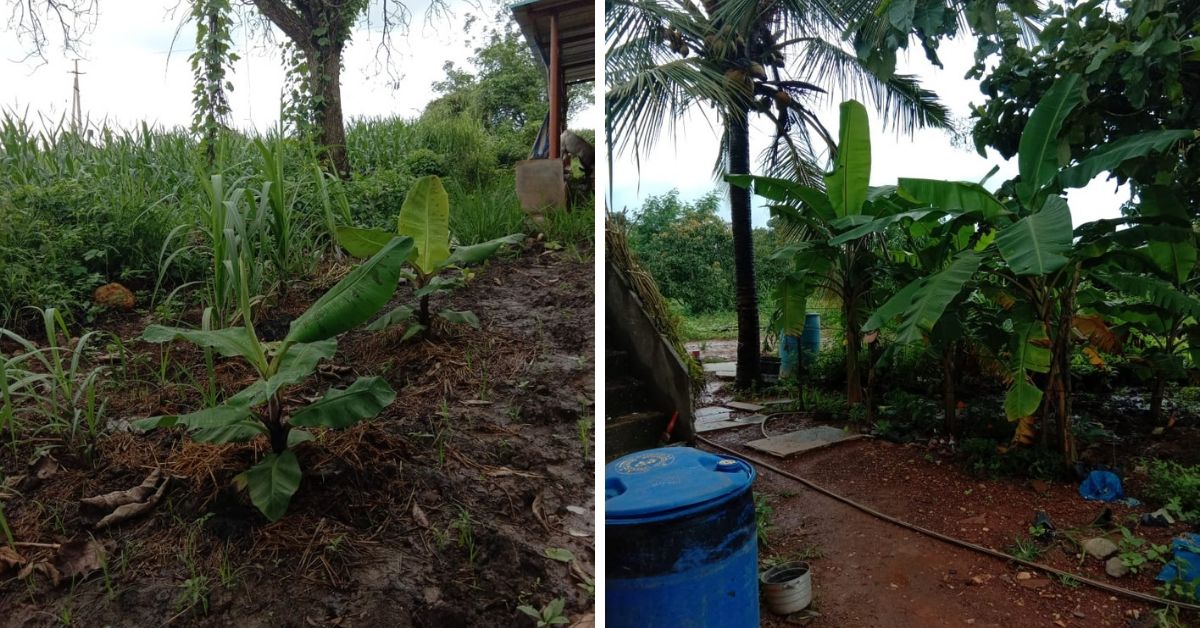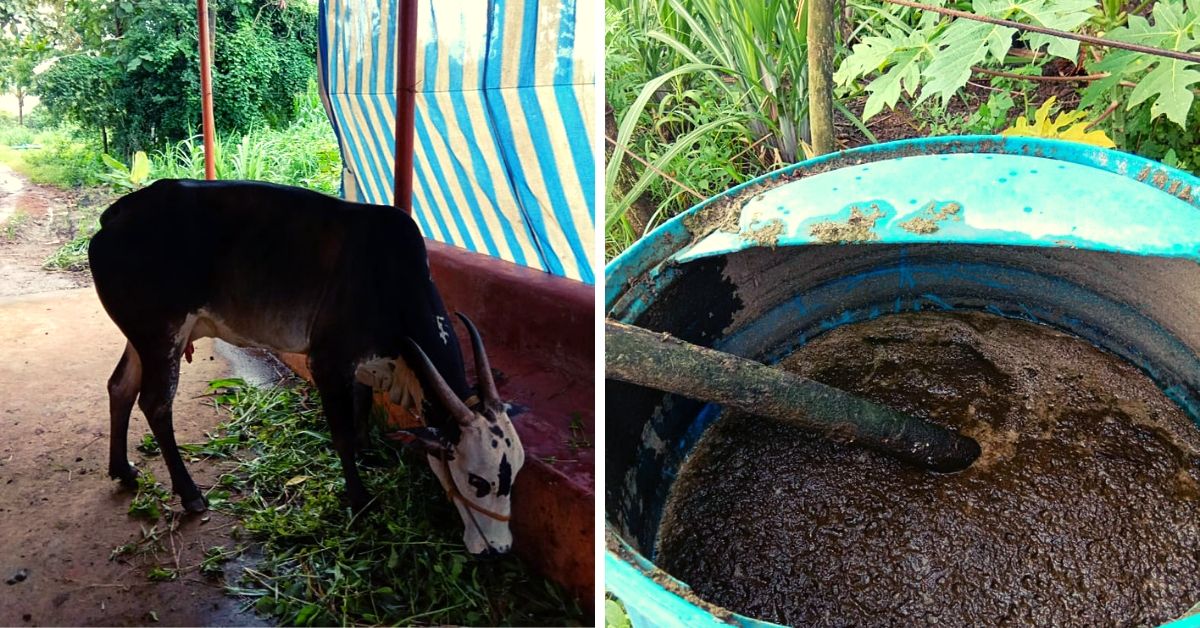Yoga Teacher Quits Job, Grows Organic Food For Underprivileged Students!
Setting a heartwarming example, the organic farmer has also adopted 5 marginalized kids and is funding their meals, shelter and accommodation!

At the crack of dawn, a group of children aged between six and twelve hurriedly make their way through the green fields in Guddad Hulikatti village of Karnataka’s Dharwad district to the hall where they learn yoga.
Worried about getting reprimanded for being late, the kids start warming up for Ashtanga yoga before their teacher arrives.
Have you ever wanted to grow your own food and vegetables on your rooftop? Click here to check out this mini hydroponic growing system to eat fresh food.
“Are your muscles relaxed?” says Mallkiarjungoud Patil, their guru, emerging from one end of the hall situated at the end of a farm opposite his house. The yoga class goes on for an hour after which they go back to their guru’s home to eat a fresh and healthy breakfast consisting of millet-made dosa or idli. Later, they chart their way to their school.
These children belong to economically backward families, and for them, Patil is their guru, their mentor and more importantly, their anchor.

The 68-year-old yoga teacher-cum-organic farmer has adopted these kids to give them an education, and a healthier present and a brighter future.
“Being uneducated, we cannot help our son in studies. We are happy Patil sir is helping our son in his studies,” say the farmer parents of Suprit, one of the children adopted by Patil.
When the children return from their school, Patil helps them with their homework and gives them practical lessons on farming.
For the last 30 odd years, Patil’s routine has been more or less the same except for a few things like switching to organic food, teaching yoga and his determination to help impoverished children get an education and a healthy lifestyle.
When Patil was diagnosed a severe back pain in 1986, he was asked to include yoga in his everyday schedule. He joined a yoga class in Hubli, where he had been working in the city’s Postal Department for ten years.
Yoga reduced Patil’s pain considerably within a year and ignited a new passion in him, “I was so bowled over by the benefits of yoga that I decided to learn it and teach others,” he tells The Better India.
After completing a diploma in yoga from Karnataka University, Patil started his own part-time classes in 1989 while still working. In his yoga career spanning three decades, Patil claims to have taught yoga to around 20,000 people.
Whether it is practicing intense power yoga or soft moving meditation, a healthy and nutritious diet is necessary for energy. I would tell my students to consume chemical-free food but they had very little idea about its source. The organic fad had not reached Hubli yet, adds Patil.
The thought of not having natural food troubled him all throughout and eventually pushed him to pursue organic farming. So until 2010, he continued with his job to fend for his family and once his three children became financially independent, Patil took an early retirement to make natural food accessible.
He moved back to his village with his wife in 2010 and took back his family’s four-acre land that he had given on lease to other farmers. The land was almost infertile due to chemicals and fertilisers that were being used on it and it took Patil nearly two years to make the farm toxin-free.

Meanwhile, he underwent a training for 3-4 months in organic farming from Karnataka University and soon, he started cultivating millet and gradually introduced other plantations like wheat, rice, groundnut, banana, mango, drumstick, maize, ragi and papaya.
Patil believes in growing plants that have high nutritional values coupled with other unique features.
Take for example millets which is a less water intensive crop and thus is drought-resistant. It is a superfood rich in fibre and minerals like iron, magnesium and calcium and has a long shelf life. As for Taiwan yellow, a papaya variety, it is rich in antioxidants and reduces the risk of heart diseases. Plus, they are sturdy and do not get easily damaged.
He uses the ancient method of preparing fertiliser, Jeevamrutha. It is a mixture of cow urine and dung, jaggery and water that can be prepared in seven days.
“I mix ten litres of cow’s urine and dung with one kilo of jaggery, one cup of soil and water. I put this mixture in a pit of 200 litre capacity, and leave it undisturbed. It provides essential nutrients like nitrogen, phosphorus and potassium to the plants,” says Patil.
Composting is another method to prepare organic fertiliser. In a 3×10 feet pit he adds wet waste and covers it with cow dung and water. The top layer of the pit is filled with waste leaves. He leaves the mix for three months after which the waste converts into compost. On an average, he produces one tonne of compost every 90 days.

“These natural agri inputs have improved the quality of soil and food and land fertility,” says Patil.
As for watering his fields, Patil uses the drip irrigation system to use water judiciously.
Having a water-saving technique in place was a crucial step. I dug a ten feet deep pit to store the rainwater. To water the farm, I use the borewell water and some of the water from the pit. The pit has also helped in recharging groundwater tables, he shares.
“This system also saves water and time as it takes me only three hours to water the entire farm as against the six hours that I wasted earlier,” he adds.
Patil did not directly find success in organic farming. The crops were destroyed in the first two years of farming and he faced heavy losses in terms of food and money. Only after studying his own plants was he able to develop ways that would suit his plants.
From cultivating six quintals of millets to 1.5 lakh mangoes per year, Patil not only grows organic food but also sells them in the market.
He has a tie-up with an organic store in Hubli and a company that markets organic produce. He keeps aside a part of the produce for his students in his village and across 15 other villages where he teaches yoga.
The Way Forward
Patil hopes to increase the number of yoga students to promote healthy lifestyle via yoga and intake of nutritional food.
As for the organic farming, he is currently chalking out a plan to conduct workshops in his village for farmers on organic means to grow food.
“At 68, if I am able to do the kind of exertion required for farming and yoga it is only because of exercise and healthy food . . . these two things have changed my life for the better. I wish to pass on my knowledge to other farmers and make them independent of pesticides,” he says.
It is not everyday you come across people like Patil. He could have retired and had an easy life. But he wanted to give back to the society, even if it meant in a tiny village like Guddad Hulikatti.
Also Read: Meet Delhi’s Aamir Ahmed, An Organic Farmer By Day & Salsa Teacher By Night
(Edited by Saiqua Sultan)
Like this story? Or have something to share?
Write to us: [email protected]
Connect with us on Facebook and Twitter.
This story made me
- 97
- 121
- 89
- 167
Tell Us More
We bring stories straight from the heart of India, to inspire millions and create a wave of impact. Our positive movement is growing bigger everyday, and we would love for you to join it.
Please contribute whatever you can, every little penny helps our team in bringing you more stories that support dreams and spread hope.



















